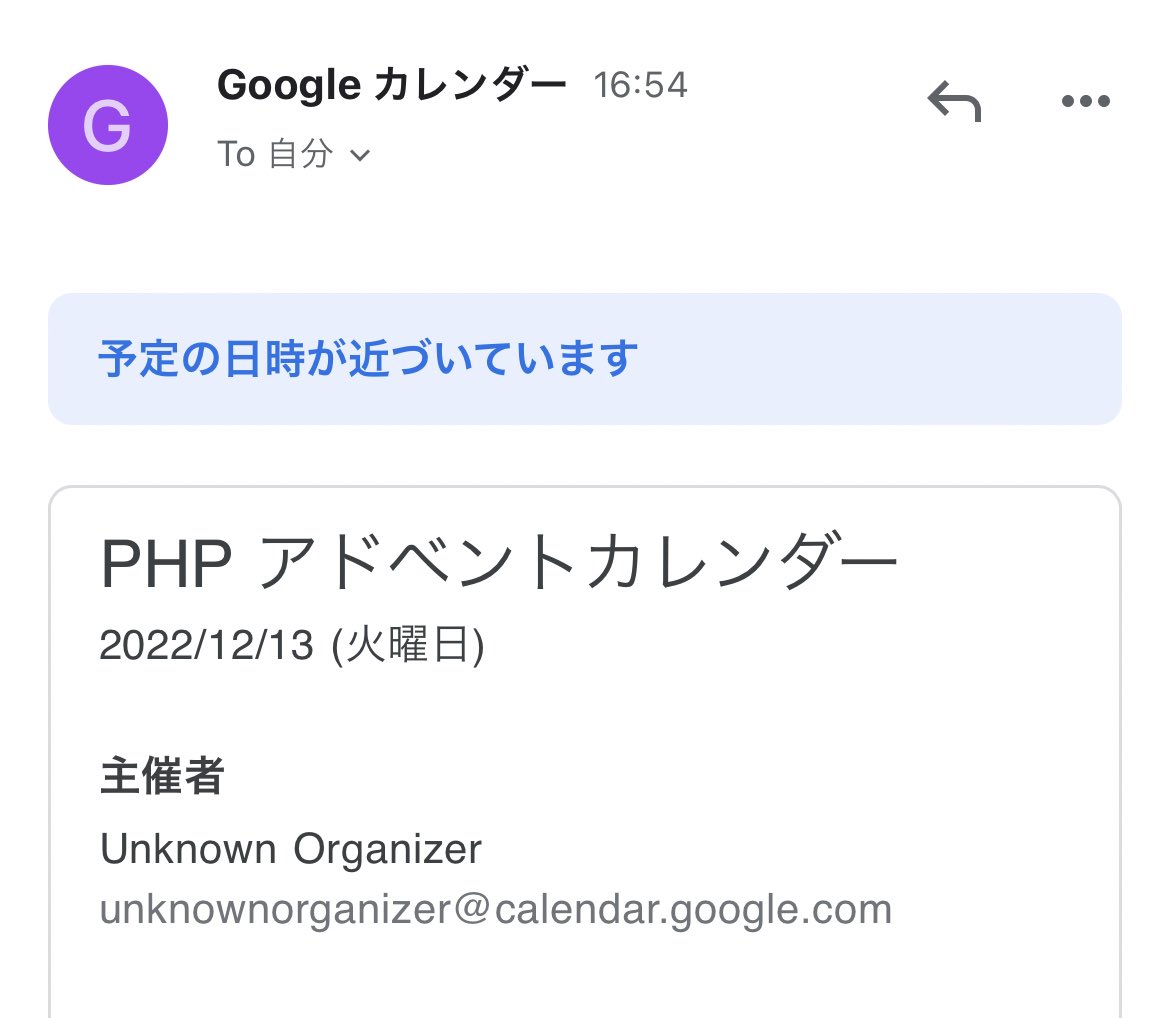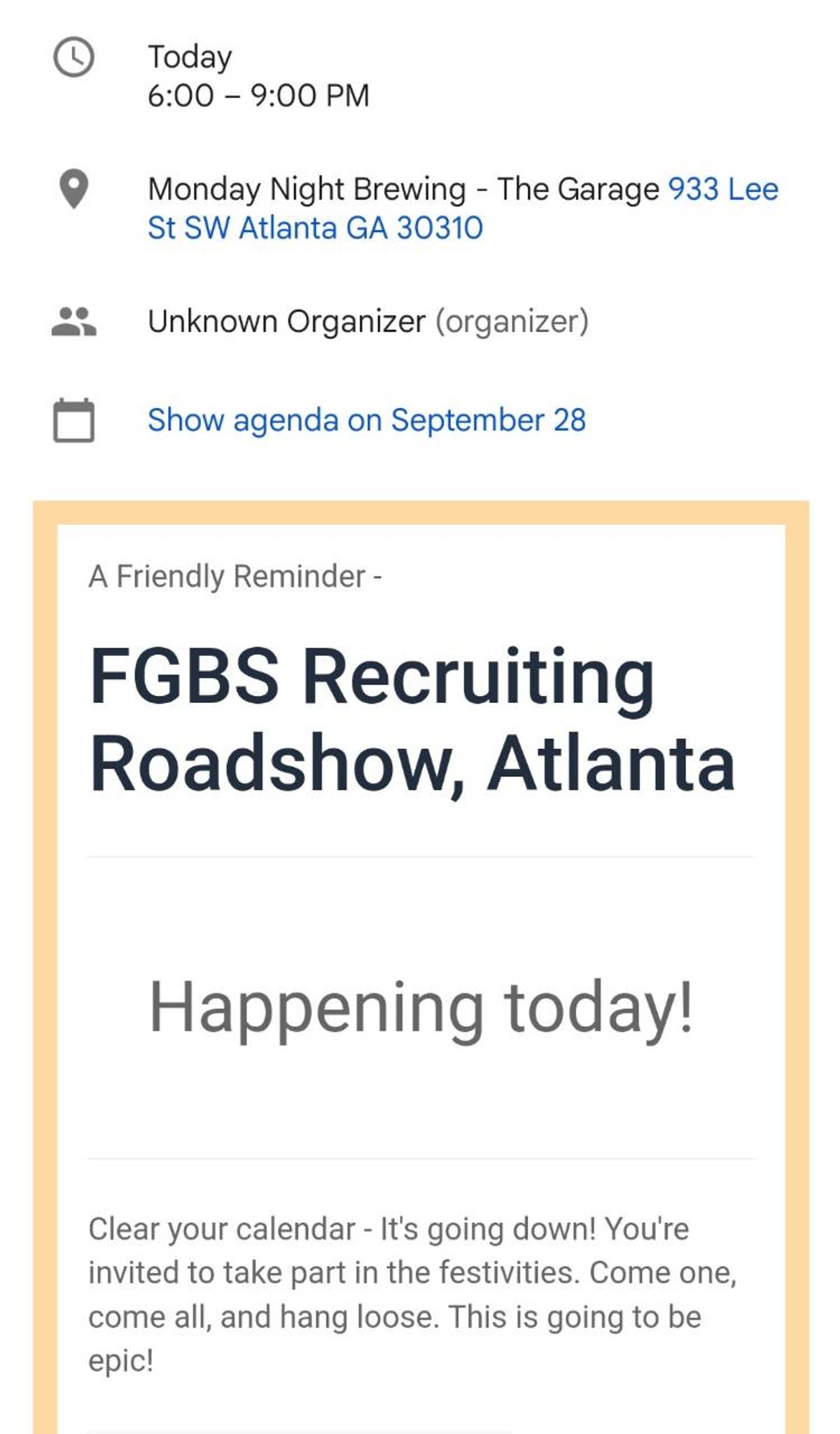Unknownorganizer Calendar Google Com – Many people are used to suspicious emails that they may receive from unknown senders and with strange links. But such messages posted to their Google calendar can seem more harmless, especially since it may not be immediately clear where they actually came from.
Recommended Action: rateLimitExceeded errors can return 403 or 429 error codes – currently they are functionally similar and should be treated similarly using exponential backoff. Also, ensure that your application follows best practices for managing quotas.
Unknownorganizer Calendar Google Com
/cdn.vox-cdn.com/uploads/chorus_asset/file/19099077/Screenshot_20190823_101420.png) Source: cdn.vox-cdn.com
Source: cdn.vox-cdn.com
When the email is sent to the client, I noticed that the “Add to Calendar” information at the top of the email lists the organizer as “Unknown Organizer”. Is there a way to change this to my company name so it looks less sketchy?
 Source: pbs.twimg.com
Source: pbs.twimg.com
I’ve attached an image so you know what I mean. { “error”: { “errors”: [ { “domain”: “global”, “reason”: “not found”, “message”: “not found” } ], “code”: 404, “message”: “not found” } } Unless otherwise noted, content on this page is licensed under the Creative Commons Attribution 4.0 License and the code examples are licensed under the Apache 2.0 License.
See the Google Developers website policies for details. Java is a registered trademark of Oracle and/or its affiliates. If you encounter calendar phishing, let us know. In addition to not clicking the links in the invitation, you can opt out of receiving the calendar invitation automatically.
 Source: www.wallchart.co.uk
Source: www.wallchart.co.uk
To change your calendar settings: Suggested action: rateLimitExceeded errors can return 403 or 429 error codes – currently they are functionally similar and should be handled similarly using exponential backoff. Also, ensure that your application follows best practices for managing quotas.
Switching to “No, only show invitations I’ve replied to” will prevent you from being added to unwanted events. It’s also worth disabling the “Show rejected events” option, which means all rejected events will disappear and not get stuck.
 Source: dslntlv9vhjr4.cloudfront.net
Source: dslntlv9vhjr4.cloudfront.net
Criminals take advantage of this by inviting people to events via Google Calendar, thereby adding the event to their schedule. It then serves as a link to a URL – where various cyber threats may lurk for anyone who clicks on it.
If you received a mysterious calendar invite from an address like [email protected] for an event you snooped around for, you may have experienced “calendar phishing”. This happens when an attacker sends a legitimate calendar invite from a random account and tries to trick you into clicking a fake URL, like the example below.
change owner of google calendar, how to change google calendar, change organizer in google calendar, help me get organized

